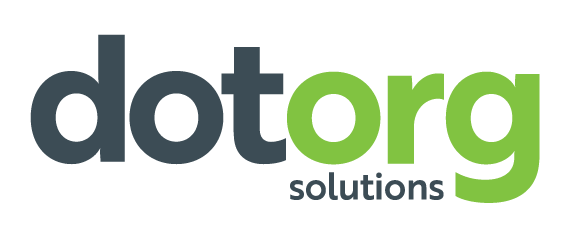Data and you: Why organized information is essential to your nonprofit
I recently participated as a panelist for a professional development program for our local Association of Fundraising Professionals Chapter. The session, “Data – A Fundraiser’s Best Friend,” focused on the importance of collecting and managing data, and how to use that data to effectively raise money.
When I talk about data with clients and in discussions like at the AFP session, I always say the same thing. “Data is one of the most valuable things your nonprofit owns. If possible, it should all be in one place and should be looked after with great care.” The initial response is usually a perplexed look. But as I start to explain why, that look morphs into an “ah-ha” moment.
The value of good, readily available data
Most nonprofits rely on volunteers and philanthropic income to advance their missions. Managing both requires keeping information up-to-date and readily available. Yet many nonprofits fail to keep accurate records that are easily accessible.
Why is good, readily available data valuable?
1. You save time – Chasing down lists from colleagues, cleaning up addresses, merging files, correcting typos and manually calculating financial information for the business office all take up valuable time. Having access to information with a simple query or report can save you hours a week, giving you more time to focus on nurturing important volunteer and donor relationships.
2. You spend less money – We all have been on the receiving end of mailing gone bad. Consider the cost of multiple, accidental solicitations to the same address. At roughly 50 cents per piece to mail, plus printing (often around $1 or more per solicitation package), a poor mail merge or data disaster could be costly, not to mention the ill will you cause with donors or prospects.
3. You are less likely to be embarrassed – Even the best kept databases have some information that isn’t 100 percent up-to-date. Make sure you track information such as marriages, divorces, deaths, job changes and other key information that can save you from embarrassing situations later. The last thing you want to do is to mail an invitation addressed to a major donor and his/her deceased spouse.
4. You get valuable information that helps drive your fundraising strategy – Many organizations keep their donor information on spreadsheets. While we applaud their effort to keep records, it is difficult to extract information that can be valuable to your fundraising strategy. Having easy access to reports for lapsed donors, outstanding pledges, giving by constituency and other key metrics can tell you where you need to spend your fundraising energy.
Collecting your data
Collecting the right data is just as important as keeping it clean and easy to find. What you collect is often tied to the resources available at your nonprofit. For larger nonprofits, there may be a team dedicated to managing the database, whereas a smaller organization may have a person managing the data along with other tasks. So it is important to be specific on what data you collect on a regular basis.
What data should you collect?
1. Constituent information – The types of constituents are specific to each organization, but key constituents often include board members, donors, volunteers, media, prospects, alumni, etc. At the very least, you should strive to capture title, name, address, salutation, email, phone, spouse/significant other, giving history, deaths of spouses and any preferences for being contacted (i.e. no mail, no email, no phone calls).
2. Just the facts – Never track anything you don’t want the donor to see in their file. A donor can request to see the information at any time. You don’t want to put yourself in a situation where you have added information that the donor may find offensive or is untrue.
3. Information that matters – Every organization needs access to specific reports and information. Work with your business office, campaign committee, board and others to determine what information they need and when. These conversations will help determine what you need to collect in your system and streamline your reporting process in the long run.Taking care of your data
Collecting, managing and capturing accurate data is a long-term investment and should be a priority for every nonprofit organization, regardless of size. So, take the steps necessary to ensure that your data-collection efforts are sustainable. Once you’ve made the commitment to improve your organization’s data, maintaining it is the next step.
How do you maintain good data?
1. Invest in a system – All constituent data relevant to volunteer and fundraising activities should be housed in one place. Invest in a donor management system specific to nonprofits. There are many options. Make sure that you get a system that will work for your organization. Not every system is right for every nonprofit. Don’t over- or under-buy. Hiring a consultant specializing in databases can often help you determine what is best.
2. Have a written process to enter the data – I can’t stress enough how important this is. Having a system to define how certain data is entered and by whom helps avoid clean up later. This process will include things like how you want addresses to be entered. (Do you use “Street” or “St.?” Do you enter phone numbers as 555.555.1212 or (555) 555-1212? Do you include salutation as a required field? Dear Mrs. Smith vs. Dear Carol?) If your key data person leaves for a new job, this guide helps staff maintain integrity until a new person is in place and gives guidance to a new person.
3. Put restrictions on who can enter data – It seems like it would be productive to let as many people as possible enter data. But the more hands you have in the data, the more chances there are for mistakes and inconsistencies. Put restrictions on who can enter data to maintain data integrity, consistency and accuracy.
4. Manage what you can handle– If you have limited staff and time, determine what information is most important to your organization. Maybe all you can do on a regular basis is enter names, addresses and gifts. That’s okay. Just make sure you enter that data accurately consistently.
It is quite possible that your organization has some work to do to get its data in order. Know that you aren’t alone. We have even seen nonprofits with the best data professionals have their own struggles. Just keep in mind that having good data is a long-term commitment and fixing data isn’t going to happen overnight. As we tell our clients in our consulting practice at Dot Org, take one step at a time toward getting the best data possible. You will definitely see how it helps you do your own job better and how it benefits your organization in the long run.
Like what you read? Subscribe to our weekly blog and it will be delivered directly to your inbox!

Amy Wong, president, Dot Org Solutions
Amy believes the world is a better place because of the special work that nonprofits do for our communities for making them better places to live, work and raise families. And as president of Dot Org Solutions, she is a champion for small businesses for the role they play in creating jobs, delivering important products and services, and keeping the economy strong.

